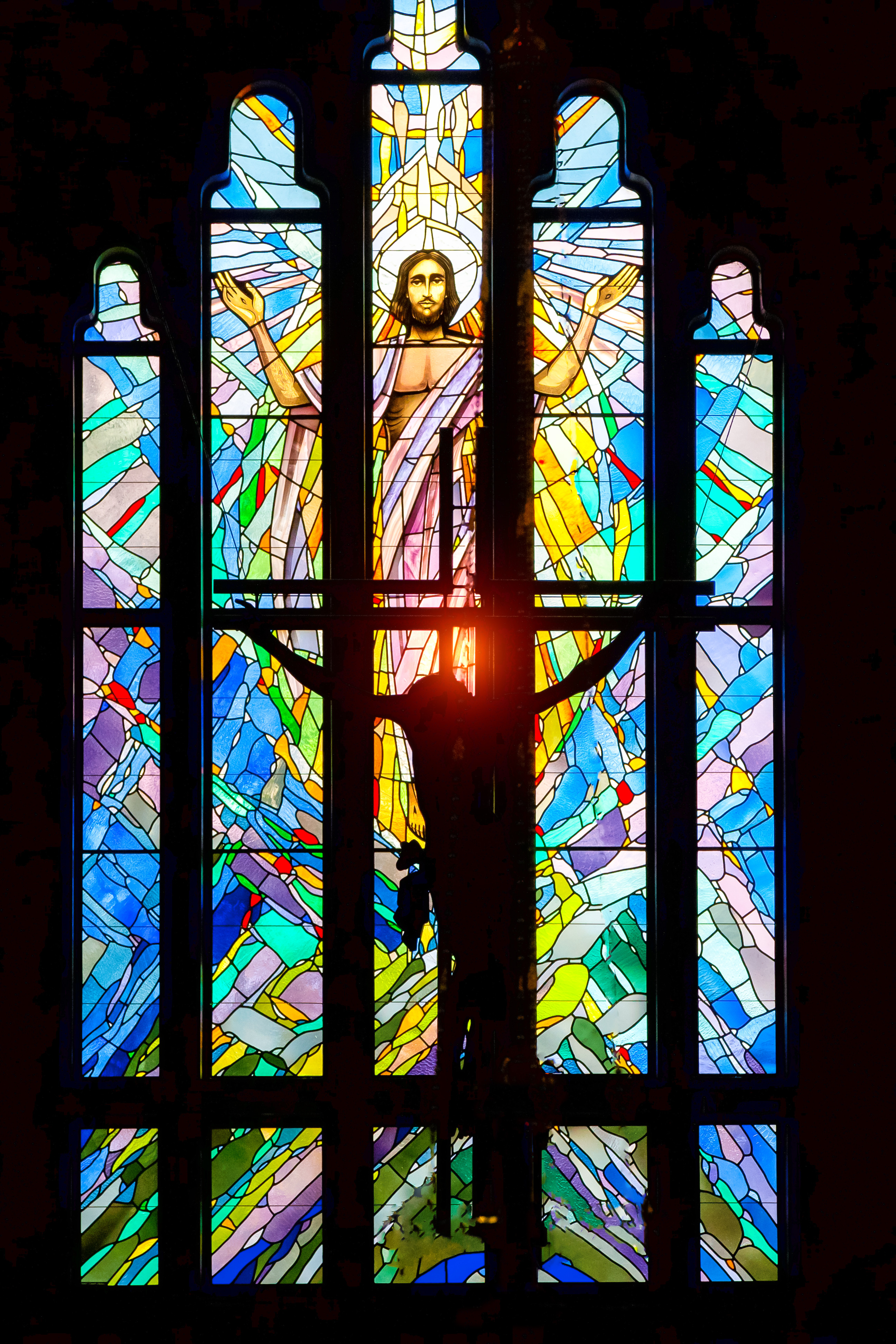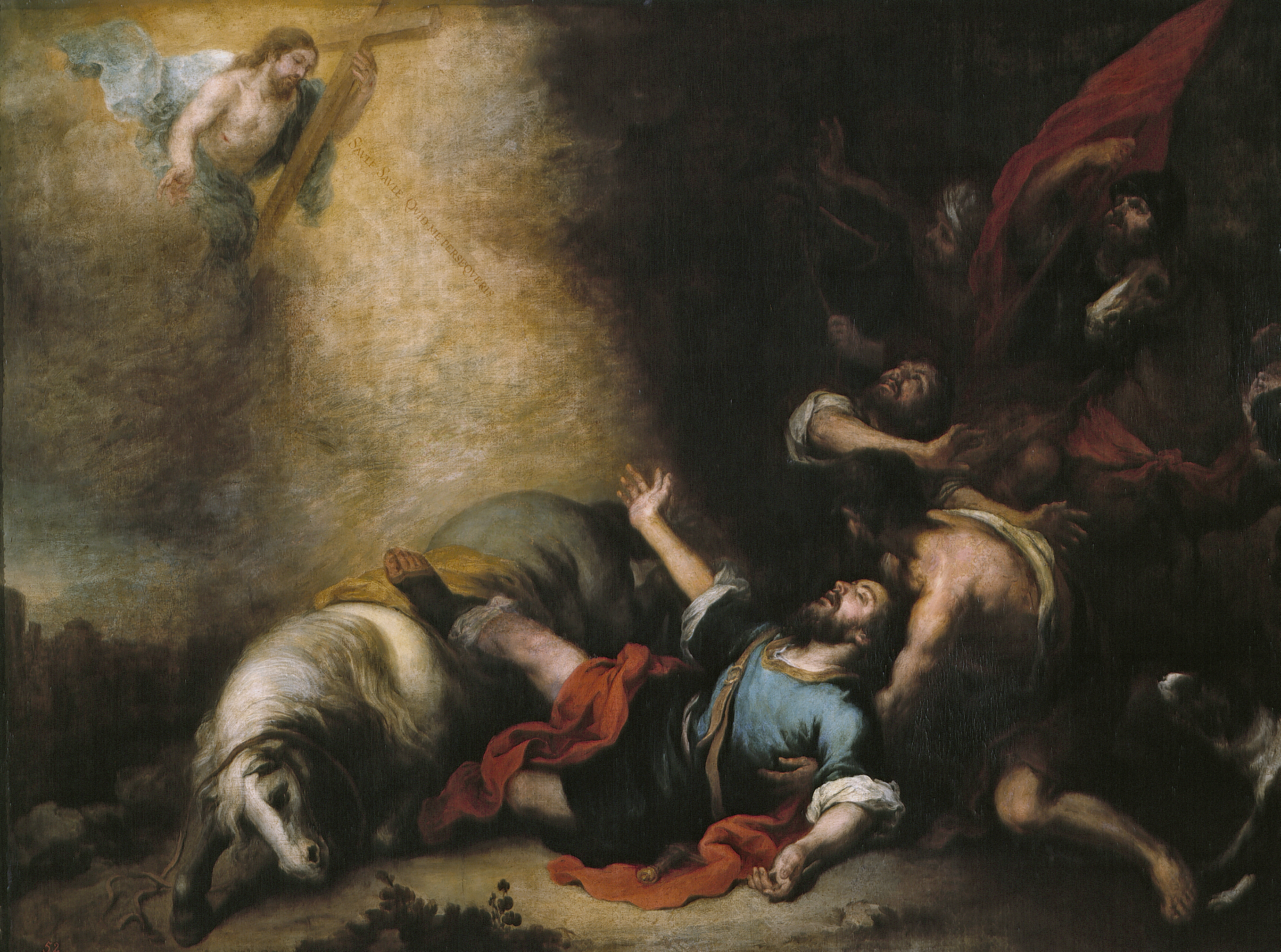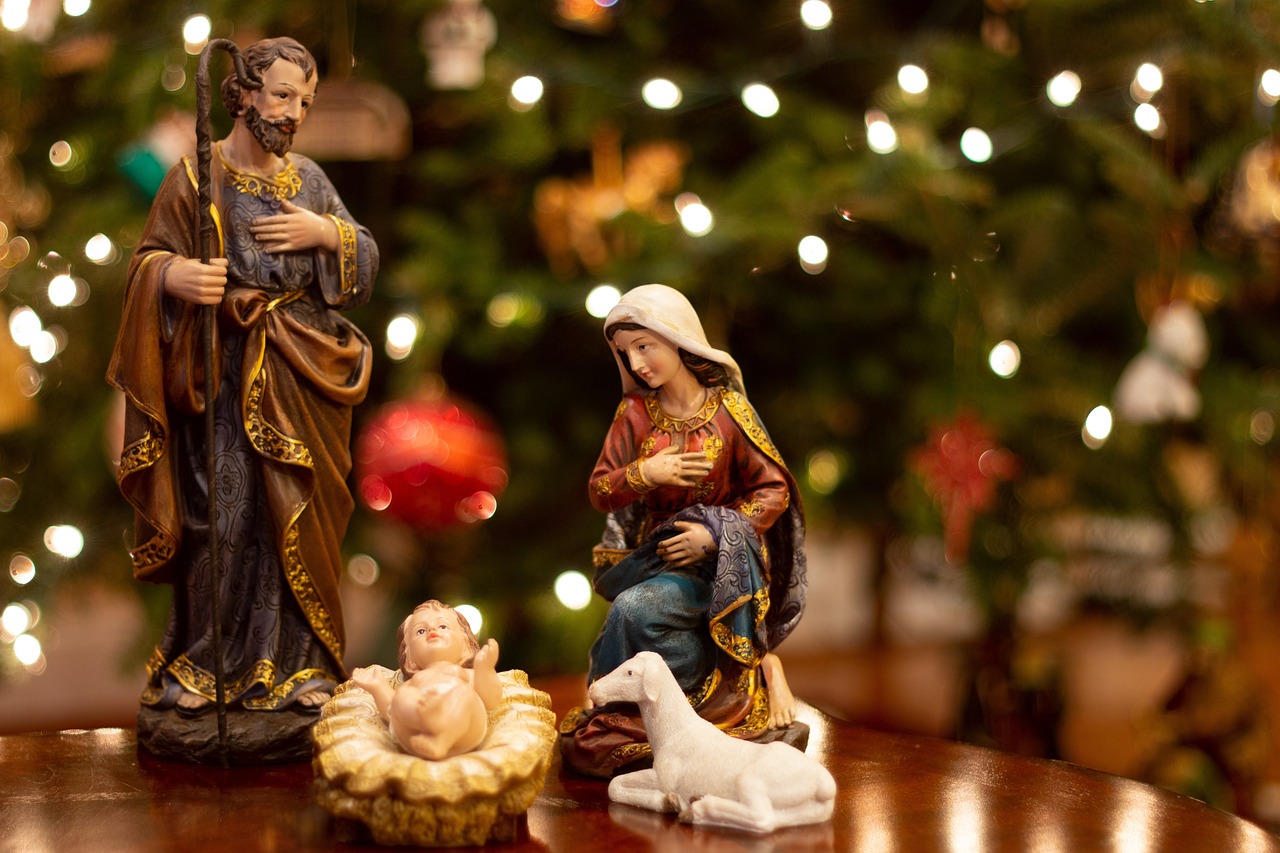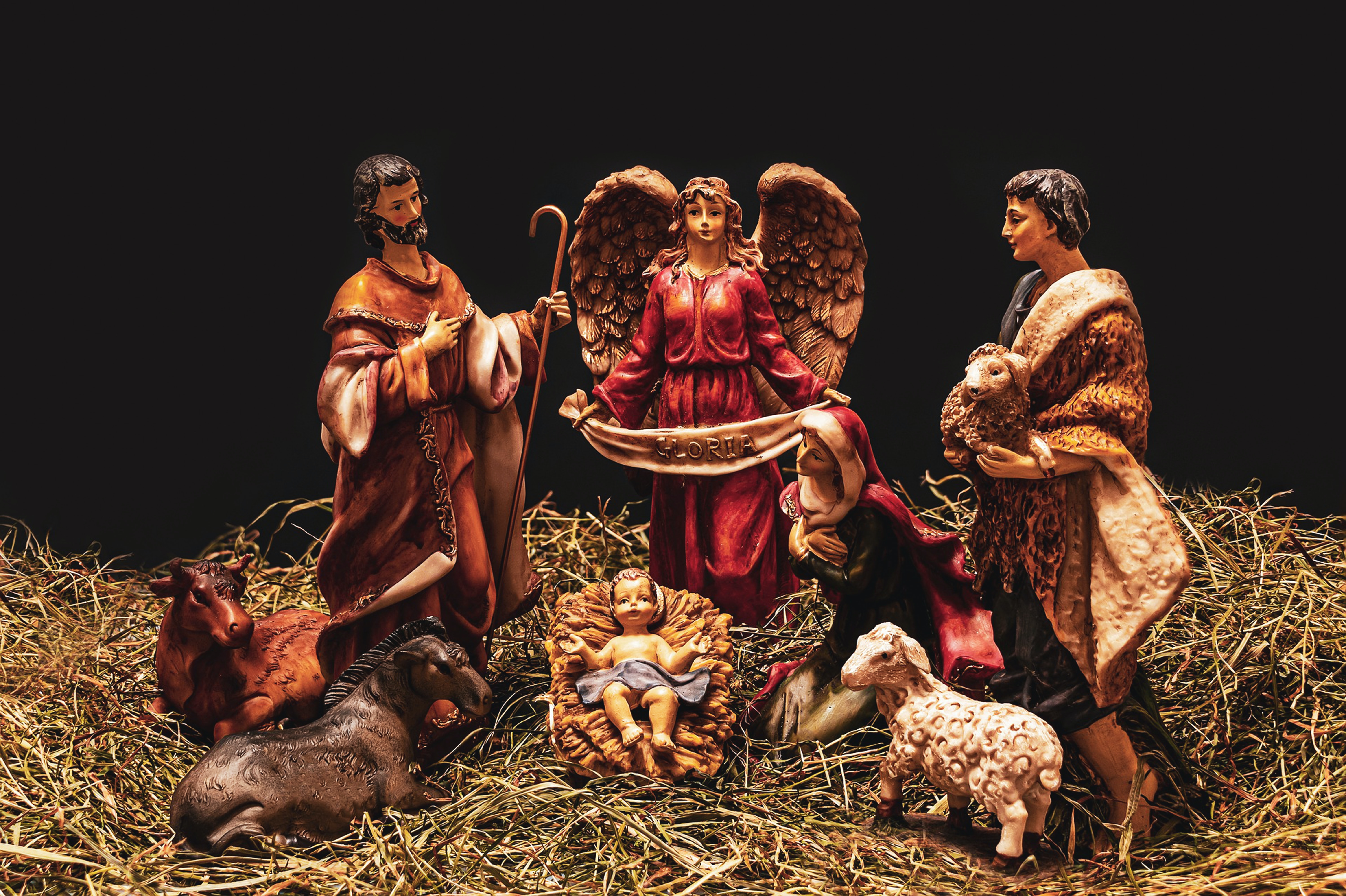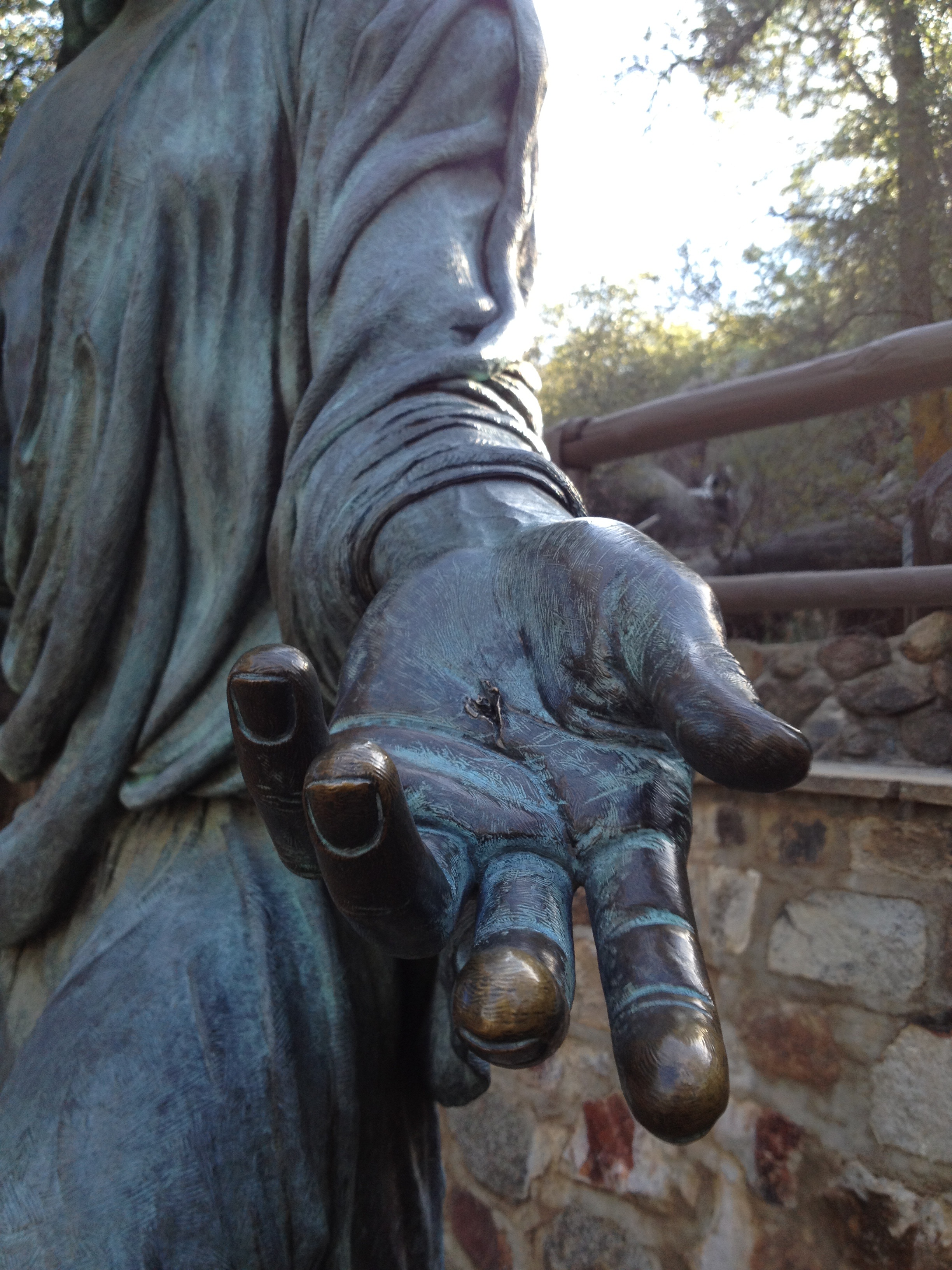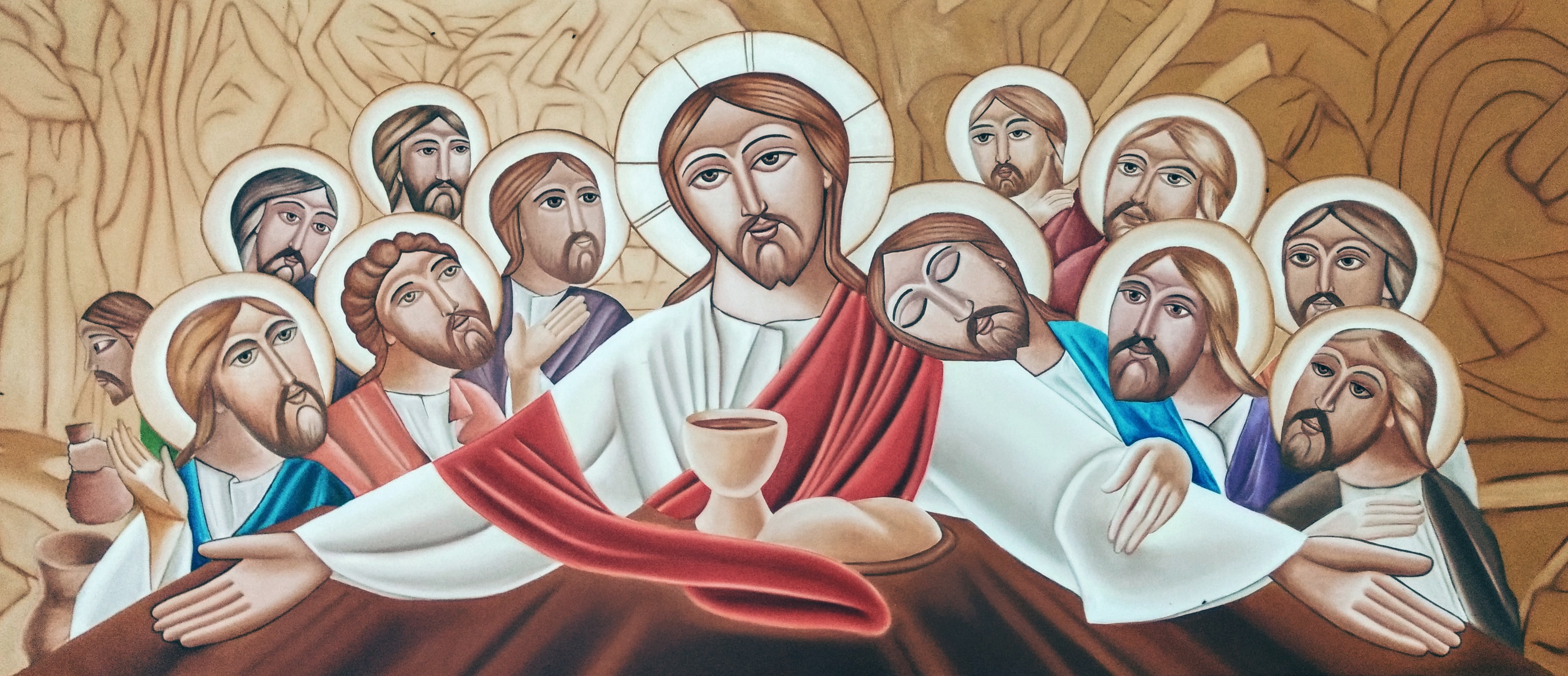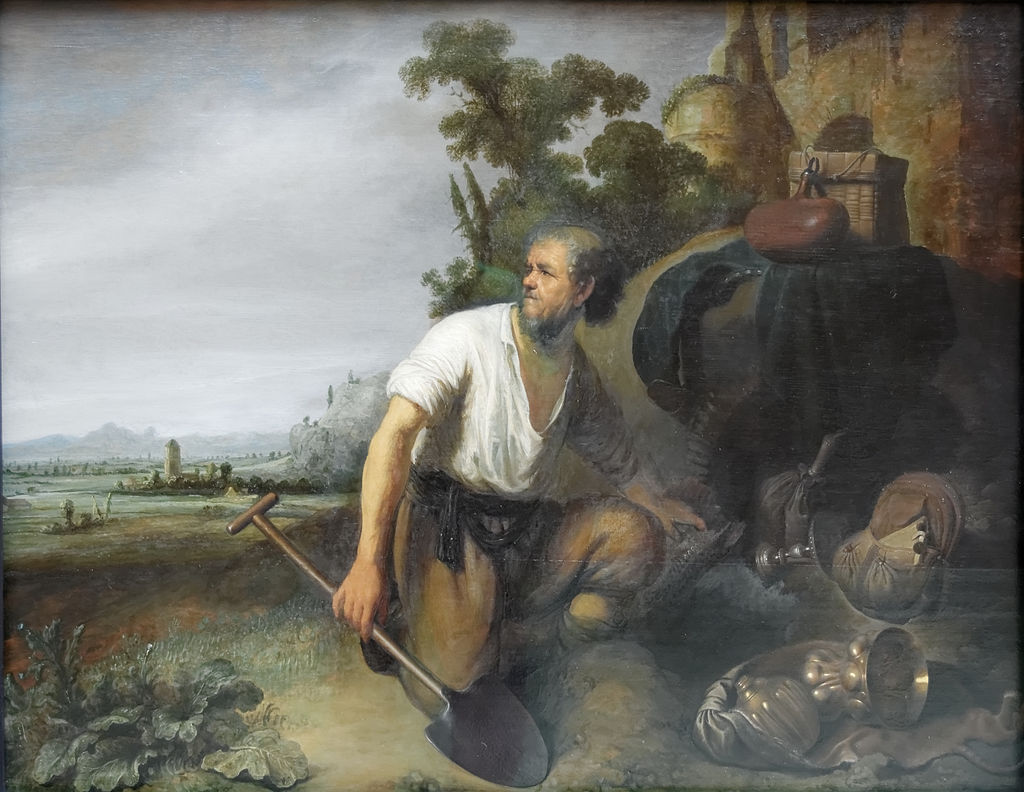Two words in this Gospel are almost terrifying: Jesus “touched him.”
We are so far removed from what leprosy signified in biblical times, that this image of Jesus stretching out his hand to touch a person whose body was consumed by the disease has no effect on us.
Lepers were the walking dead who were banished to live outside towns in caves, tents, or garbage dumps. Even breathing the same air as a leper was thought to be dangerous, since leprosy was considered highly contagious. Leprosy consumed a person’s body, leaving stumps where fingers, hands, feet, or noses had once been. The laws dictated that lepers were to maintain a twelve-step distance from others, cover their mouths with a cloth, and cry out “unclean, unclean” to announce their presence.
Most of us still have lingering memories of the fear we experienced with COVID-19, when being within six feet of another or breathing the same air conjured up the possibility of a painful death. We learned to stay away from others to protect ourselves and those we love.
Jesus, instead, “touched” the leper. He stepped over the imaginary line, entering into the danger zone of closeness with the leper. He got close enough to this man to smell the putrid odor of his decaying flesh. He could feel the man’s foul breath on his face. He got closer still in order to touch the body of the leper, putting his fingers into the wounds of his oozing sores. He conveyed to this man that he wanted to heal him so much that he himself was willing to risk his life, to give his life. He was close enough to look directly into the eyes of a person whose face was horrifically disfigured and perhaps even unrecognizable. And Jesus touched him.
Sometimes we may feel that we have become disfigured, unrecognizable, because of the wounds we have received in our lives and the brokenness of our own sin. And Jesus touches us. We may consider certain people in our lives “lepers” in the sense that they think, speak, or act in ways that threaten us or walk outside the path of discipleship with the Lord Jesus. And Jesus touches them.
There is no leprosy that frightens Jesus away, no disfigurement that makes him draw back. One day, when thinking of certain people in my life, wondering how they could be at peace with what they were doing, I heard God say to me this: “I know. Only I know.” Jesus touches each of us in the places of our leprosy. Each of us is known intimately and lovingly by a God unafraid to enter into our misery and walk with us on our journey to the Kingdom.
I invite you to ask yourself in a moment of prayer today: “Jesus, what does this say about you and about me?”
Dos palabras en este evangelio son casi aterradoras: Jesús “lo tocó”.
Estamos tan alejados de lo que significaba la lepra en los tiempos bíblicos, que esta imagen de Jesús extendiendo su mano para tocar a una persona cuyo cuerpo estaba consumido por la enfermedad no tiene ningún efecto en nosotros.
Los leprosos eran unos muertos vivientes que eran desterrados a vivir fuera de las ciudades, en cuevas, tiendas de campaña o basureros. Se pensaba que incluso respirar el mismo aire que un leproso era peligroso, ya que la lepra se consideraba altamente contagiosa. La lepra consumía el cuerpo de una persona, dejando muñones donde antes había dedos, manos, pies o narices. Las leyes dictaban que los leprosos debían mantenerse a una distancia de doce pasos de los demás, cubrirse la boca con un paño y gritar “inmundo, inmundo” para anunciar su presencia.
La mayoría de nosotros todavía tenemos recuerdos persistentes del miedo que experimentamos con el COVID-19, cuando estar a menos de dos metros de otra persona o respirar el mismo aire evocaba la posibilidad de una muerte dolorosa. Aprendimos a mantenernos alejados de los demás para protegernos a nosotros mismos y a nuestros seres queridos.
Jesús, en cambio, “tocó” al leproso. Cruzó la línea imaginaria, entrando en la zona peligrosa de cercanía con el leproso. Se acercó lo suficiente a este hombre como para oler el olor pútrido de su carne en descomposición. Podía sentir el mal aliento del hombre en su rostro. Se acercó aún más para tocar el cuerpo del leproso, metiendo los dedos en las heridas de sus llagas supurantes. Le transmitió a este hombre que quería curarlo tanto que él mismo estaba dispuesto a arriesgar su vida, a dar su vida. Estaba tan cerca que podía mirarle directamente a los ojos de una persona cuyo rostro estaba horriblemente desfigurado y tal vez incluso irreconocible. Y Jesús lo tocó.
A veces podemos sentir que somos desfigurados, irreconocibles, por las heridas que hemos recibido en nuestra vida y el quebrantamiento de nuestro propio pecado. Y Jesús nos toca. Podemos considerar a ciertas personas en nuestras vidas “leprosos” en el sentido de que piensan, hablan o actúan de maneras que nos amenazan o se salen del camino del discipulado con el Señor Jesús. Y Jesús los toca.
No hay nada que le asusta a Jesús, ni desfiguración que le haga retroceder. Un día, al pensar en ciertas personas en mi vida, preguntándome cómo podían estar en paz con lo que estaban haciendo, escuché a Dios decirme esto: “Lo sé. Sólo yo lo sé”. Jesús toca a cada uno de nosotros en los lugares de nuestra lepra. Cada uno de nosotros es conocido íntima y amorosamente por un Dios que no teme entrar en nuestra miseria y caminar con nosotros en nuestro camino hacia el Reino.
Te invito a preguntarte hoy en un momento de oración: “Jesús, ¿qué dice esto de ti y de mí?”

Sr. Kathryn James Hermes, FSP, is an author and offers online evangelization as well as spiritual formation for people on their journey of spiritual transformation and inner healing. Website: www.touchingthesunrise.com My Books: https://touchingthesunrise.com/books/
Public Facebook Group: https://www.facebook.com/groups/srkathrynhermes/ HeartWork Spiritual Formation Group: https://touchingthesunrise.com/heartwork/
Feature Image Credit: Dzambel, cathopic.com/photo/21109-christ-is-risen
